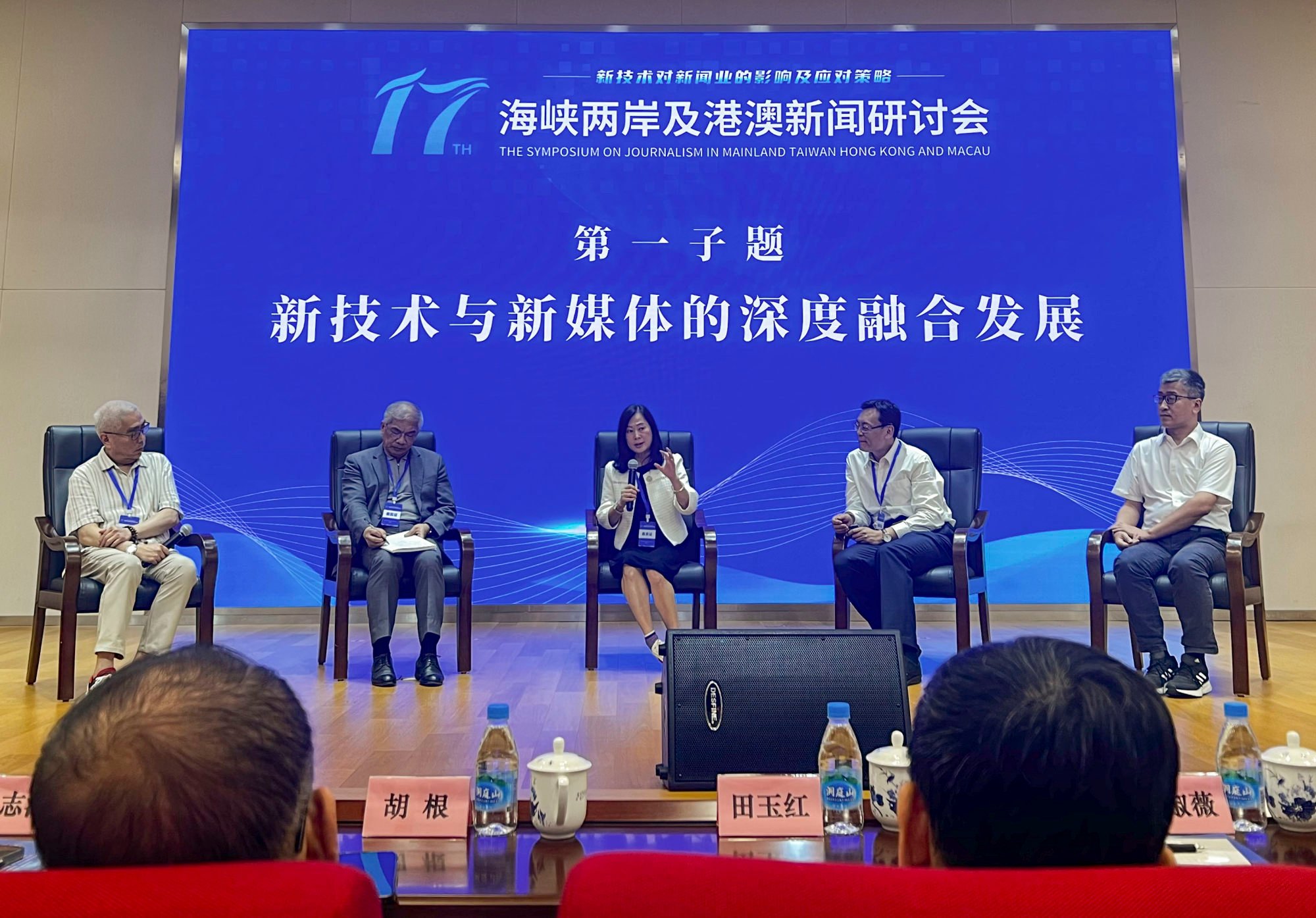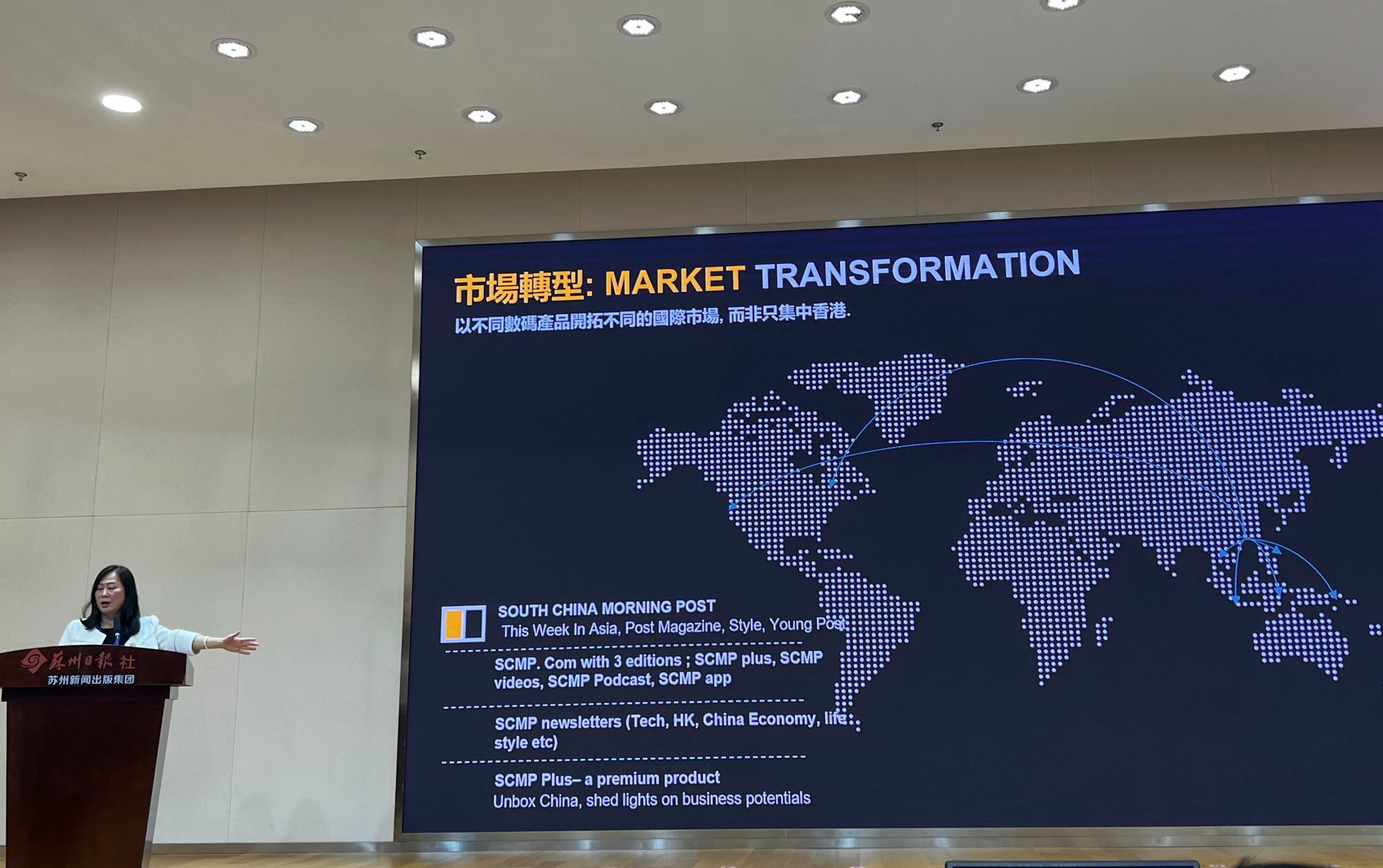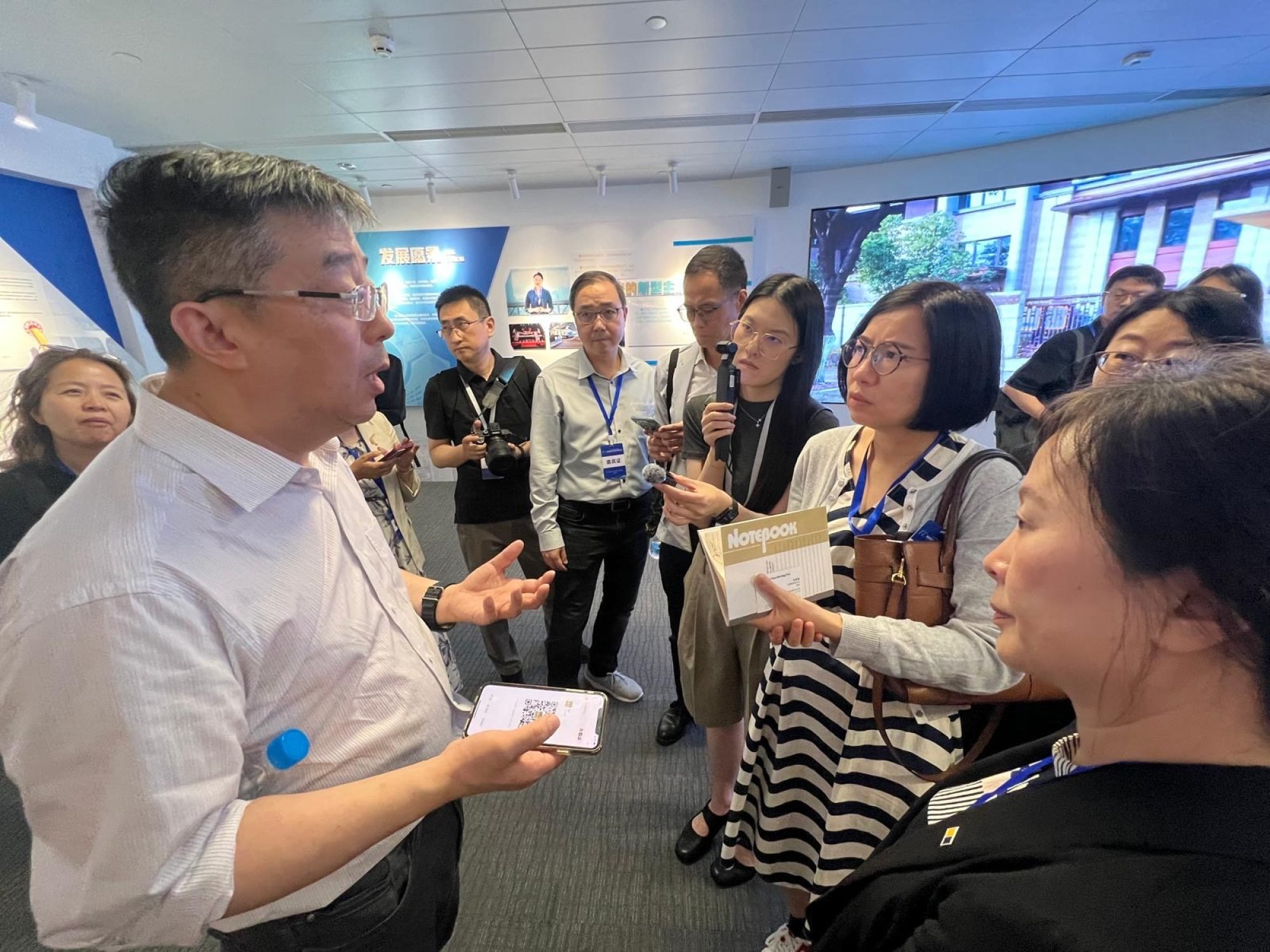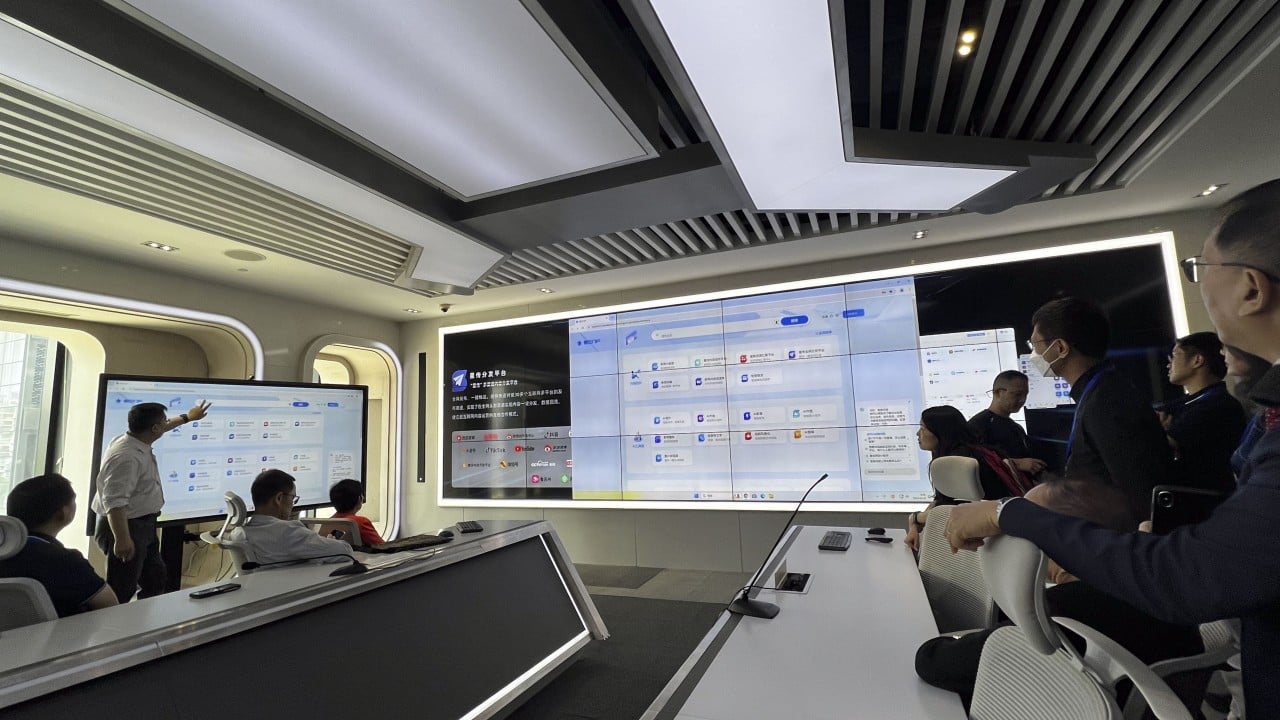China’s media industry is racing to embrace new technology for much-needed transformation, as operators look to become more financially sustainable while also stepping up fact-checking efforts.
This was the on-the-ground experience shared by most of the about 100 leaders in traditional and new media from Hong Kong, Macau, mainland China and Taiwan who gathered at a forum earlier this week, the first in seven years connecting the executives from the four places.
The media professionals met in Suzhou, Jiangsu province, to share their experience on the impact of the latest technology trends on the industry and how to cope with them.
Some operators from Hong Kong, Taiwan and Macau said they were caught between trying to tap into the opportunities of developments such as artificial intelligence (AI) while also balancing the risks and adapting to readers’ shifting behaviour.

But those on the mainland said they had overcome such barriers through trial and error, and they were keen to develop business models to make the use of such technology financially sustainable.
“Technology is a double-edged sword that has not only revolutionised media, but also the proliferation of misinformation and hence the difficulties in discerning misinformation,” said Professor Wang Runze, from Renmin University of China’s school of journalism and communication.
“Media practitioners should not rely too much on technologies, instead, they should return to the original value of media – to guide opinions.”
Macau Lotus Satellite TV Media director Li Zisong said there were both upsides and downsides.
“Some people say that this is the worst era because news has been hit by many new technologies. But this is also the best era because news companies can use new technologies to revive their operations and to expand their audience,” he said.
“We live in a world intertwined with both the virtual world and reality, there must be no fabrication and obscuring of information.”
Zhang Lei, deputy editor-in-chief of the mainland’s second-largest official news agency after Xinhua, China News Service, said content, technology and distribution channels were key.
“But the king of kings is a deep collaboration of all of these,” he said.
Taiwan-based Chinese Internet Channel Community Association chief and veteran media practitioner Jeff Ko said the self-ruled island’s political nature made misinformation so rampant that even official denials were regarded as fake on many occasions.
Hong Kong News Executives’ Association chairwoman Tammy Tam said a publication’s reputation and credibility were of top importance.
“Be an authoritative voice, which also means the potential to charge a higher advertising price,” said Tam, who is also the editor-in-chief of the Post.
Tam also presented the Post’s digitisation journey as a case study to the participants, emphasising how critical it is for the survival and development of the industry by embracing ever-evolving technology while maintaining journalistic integrity and professionalism.

The association was a co-organiser of the biannual “Symposium on Journalism in Mainland, Taiwan, Hong Kong and Macau” alongside the mainland’s All-China Journalists Association, the Taiwan-based China Press Institute and the Associacao Dos Trabalhadores Da Communicacao Social De Macau.
Professor Clement So York-kee from the Chinese University of Hong Kong’s journalism and communication school called on reporters to embrace new technology, citizens to be more discerning over misinformation, media companies to restructure workflow and society to establish more fact-checking tools.
Privately owned news outlets also said they had a battle on their hands to be profitable amid the huge amount of free information easily available on social media.
Macau Daily News said it rolled out a host of initiatives to retain readers and tap new sources of income. The operator increased the amount of content it was producing, launched a mobile phone app and social media accounts, charged a fee for some content and expanded into the Greater Bay Area.
The bay area is Beijing’s plan to combine Hong Kong, Macau and nine cities in Guangdong province into an economic powerhouse.
“Although the new sources of income are not as fruitful as traditional forms of advertising, it is the right direction for transformation,” said Ieong Kun Kit, the daily newspaper’s executive-associate.
Although most mainland media outlets are owned by the state, operators have to be financially sustainable and carve out their own business model.
Suzhou Broadcasting System, for example, was among the first batch of mainland firms to absorb smaller local players to become the only media conglomerate in their base city.
It also tailor-made its own operating system, which included using AI to produce broadcast materials, create graphics and publish news content.
According to editor-in-chief Guo Changxiong, the company initially spent years employing third-party engineers to create a platform, which was not used in the end.
“We ended up working out our own platform based on existing AI software, such as ChatGPT and OpenAI tools, which reduce staff workloads and enable employees to be deployed to other tasks such as coming up with ideas and verifying facts and content,” he said.
“So reporters decide content by giving the system a parameter – it’s not led by AI. AI is a tool not a leader.”

He said he did not think AI would replace reporters, and he believed it could unlock staff potential and manpower for higher-level jobs.
“Now, an employee can do jobs that used to be done by two to three people, and still have a life,” Guo said.
He added the company received no financial aid from the government, except that it was granted a site next to its headquarters to allow it to run some commercial activities to generate income and finance its media business.
The site was now occupied by a Hilton hotel, which yielded one-third of the group’s income, he said. Another one-third came from a portfolio of financial investments and the rest from the media operations.
Another example was Guangzhou-based Nan Fang Media Group, which not only designed its own software and operating systems, but also used the systems to run government websites, applications and social media.
These government services contributed 236 million yuan (US$32.5 million) or 90 per cent of the group’s total income last year, according to vice-president Hou Xiaojun.
“The government knows media companies will do a better job in explaining policies or public news to audiences and it is more cost effective to outsource the services to us,” he said.


